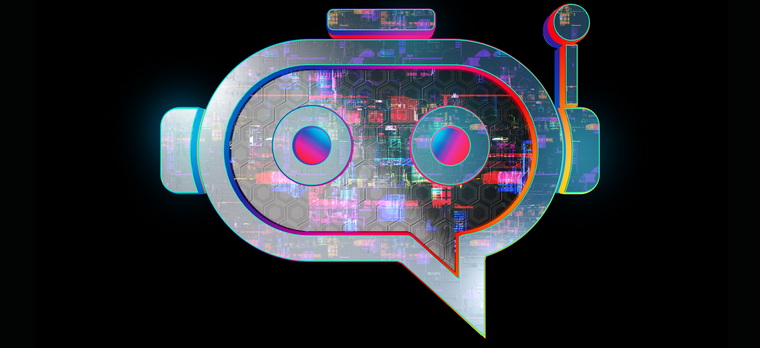The Ethics of AI in Business: Balancing Innovation with Responsibility
Business leaders face a dilemma in adopting artificial intelligence: balancing rapid innovation with ethical restraint. Many discuss “responsible AI,” but few implement it effectively, risking systems they can't control.

In the rush to harness artificial intelligence, business leaders have found themselves walking a narrow bridge. One side pulls toward rapid innovation, automation, and profit acceleration. The other demands restraint, ethics, and a long view of impact. And while most companies talk about “responsible AI,” fewer know what it truly looks like in practice. What happens when speed and scale start to outrun human judgment? That’s the question companies must face before they build systems they no longer understand—or control.
Using AI to Support Everyday Work
AI isn’t just about replacing human work—it’s about removing friction from the day-to-day grind so small teams can do big things. From rapid image generation to real-time copy suggestions, businesses are using these tools to expand reach without expanding overhead. Creative bottlenecks shrink. Campaign cycles shorten. The essential benefits of generative AI include giving small businesses the power to produce high-impact content quickly and affordably, making digital marketing feel less like guesswork and more like progress.
Why Responsible Innovation Matter
AI isn't an emerging trend anymore—it's in the boardroom, embedded in workflows, and shaping customer experiences in real time. But in this rush, ethics often becomes a checkbox rather than a foundation. The idea that AI has become a business imperative isn’t just about competitiveness—it’s about legitimacy. As systems grow more autonomous, the pressure to prove accountability, fairness, and reliability intensifies. If companies don't bake these into the build, they'll be forced to retrofit them after a breach of trust—when it’s already too late.
Laying the Groundwork for Ethical Systems
Forget the corporate whitepapers. In practice, ethics in AI means making decisions about who benefits, who bears the risk, and what values get coded into a system. It’s about fairness in hiring tools, clarity in loan approvals, consent in data collection. These aren’t side concerns. They are the blueprint. Without them, AI doesn’t just make mistakes—it reinforces the worst assumptions and hides them behind math.
The Role of Leadership in AI Oversight
You can't outsource ethics to the IT team. CEOs, founders, and executives are now responsible for how AI behaves. It’s not just a tech stack—it’s a social contract. Real leadership means having the visibility, structure, and courage to oversee AI development responsibly from day one. That includes defining boundaries, assigning ownership, and making room for dissent when decisions go too far, too fast. Ethical leadership in AI isn’t about being perfect—it’s about not hiding when things go sideways.
Building Transparency into AI Experiences
No one trusts a black box—especially when it starts making choices about money, healthcare, or freedom. The fastest way to lose users is to hide how your system works or dodge accountability when it fails. Trust isn’t a buzzword; it’s the outcome of visible, fair systems that respond to real feedback. Building trust in AI-powered systems means owning the impact, being clear about limits, and making space for challenge. Without trust, you’re not scaling innovation—you’re scaling risk.
When Values Aren’t Backed by Action
It’s easy to publish a code of ethics. Much harder to live by it when the incentives say otherwise. Most businesses still operate in legal gray zones, hoping future regulation won’t undercut their roadmap. But policy is catching up. And if companies don’t lead with integrity, someone else will write the rules for them. Ethics without accountability isn’t leadership—it’s PR.
Designing Accountability Into Innovation
Innovation can’t mean permission to experiment on the public. It can’t mean rushing into markets where the fallout only becomes clear after damage is done. As scrutiny grows, so does the demand for smarter tailored regulation. If businesses want to retain autonomy, they need to prove they deserve it. That means knowing when to pause, who to involve, and how to respond when their tech misfires. Because moving fast and breaking things? That’s not bold anymore—it’s lazy.
The future of AI in business won’t be decided by coders alone. It’ll be shaped by every choice companies make about who gets a say, what gets measured, and what gets ignored. Ethics isn’t the soft stuff—it’s the steel that keeps the system upright when the winds shift. Doing it right takes clarity, humility, and skin in the game. It requires systems that listen, leaders who stay accountable, and policies that hold when pressure mounts. If businesses want to lead in AI, they need to do more than innovate. They need to deserve the trust they’re asking for.
Join ESOMAR today and become part of the world’s leading network for market, opinion, and social research—where ethical standards, global insights, and professional growth converge.


